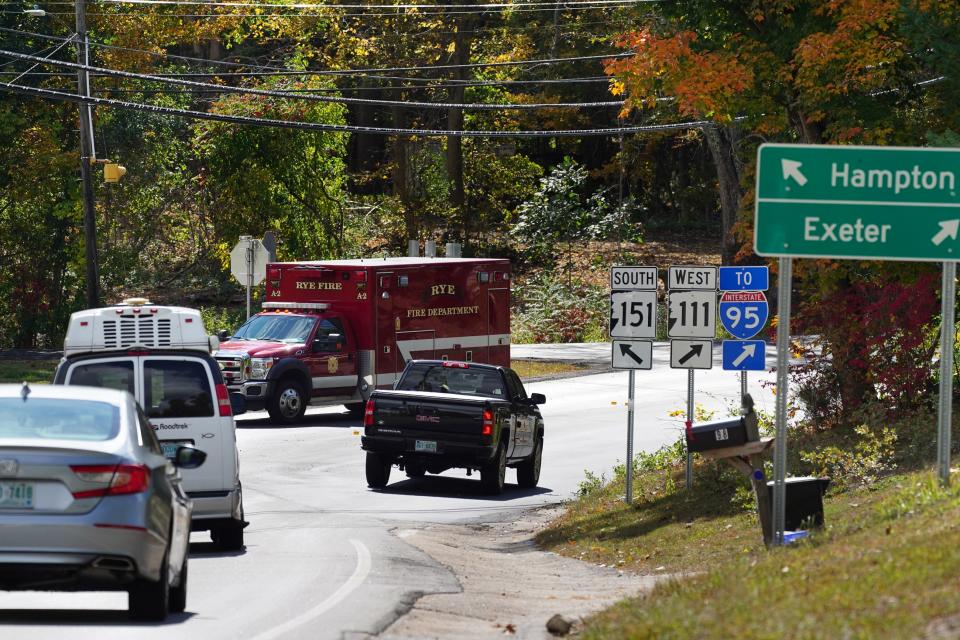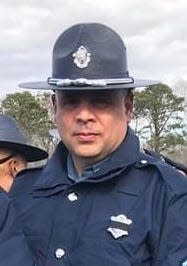North Hampton police look to crack down on speeding: Here's why
NORTH HAMPTON — Police are looking to crack down on speeders by deploying new technology after seeing an uptick in complaints from residents.
North Hampton Police Chief Robert LaBarge said the most frequent complaints about speeding vehicles are on Atlantic Avenue, Post and Exeter roads. These roads serve as the main arteries of North Hampton, funneling traffic to major highways such as Route 101 and I-95.

LaBarge also has received complaints about speeding on less high-profile byways, like North Road.
Although such roads are more difficult to patrol for speeding, LaBarge said it’s important to work toward slowing things down in the name of safety.
The first step in alleviating speeding problems is data collection, he said. Right now, that’s done laboriously using officers.
LaBarge stations officers in cruisers at least twice daily at problem spots, using handheld radar equipment to gauge speed and pull over drivers that exceed the speed limits. However, the department is still understaffed, and with a limited number of officers each shift, traffic surveillance is often interrupted when officers have to address a call for service.
“I’ve been doing some of these patrols myself,” LaBarge said. “The other day near North Hampton School, in a couple of hours, I pulled over 18 people going at least 10 miles over the speed limit. Usually, it’s a warning, but then it comes down to how many warnings does someone get before a ticket is issued.”
In the past few months, the majority of people LaBarge has pulled over were from Hampton, Rye, and North Hampton.
More: SOS Recovery closing Hampton location, relocating to Exeter
North Hampton eyes technology to address speeding
With the department still not up to a full complement of officers — LaBarge is working towards filing five vacancies — he’s looking at technology to provide him with the data he needs to understand the extent of the problem and how to correct it.
"Most people have the perception that people are driving very fast, 55 or 60 miles per hour,” he said. “That may not be the reality of the situation, so we need to learn more.”
North Hampton has handheld speed-detecting devices that officers aim at vehicles to determine speed, he said. But, again, that’s manpower intensive and can only be effective a few hours at a time.

There is technology available, however, that provides long-term, continuous analyses of traffic on roadways for days or even weeks at a time.
LaBarge said traffic data collection equipment uses radar, counters, distance measuring instruments and other options to provide surveys for speed management and road engineering information for future projects.
These units are mobile, he said, and can be strapped to a stationary object like a utility pole on a specific roadway to accumulate data. With its included software, the information gathered may include the number of vehicles that use the road during any given time period, the average speed in comparison with the posted speed limit, the number of enforceable violations and the peak time for those violations.
Units, he said, can be used alone and without tying up a police officer for hours.
When one trouble spot is analyzed, LaBarge said police officers can be deployed during critical time periods to enforce the speed limit while the unit is moved to the next problem area to collect data.
What it isn’t is “Big Brother,” LaBarge said, as it doesn’t capture license plate numbers.
Miller's Comics burglary: North Hampton store 'trashed,' $15K in goods stolen
What's next
LaBarge researched companies that provide such equipment, and when compared with the cost of hours for personnel doing the same job, it does not appear to be overly expensive.
It comes in at about $4,000 per unit, he said, complete with software.
The units are already in use by other area departments, including Hampton.
Hampton Captain Anthony Azarian said they have two units that survey roadways in town and they provide valuable information.
"These units gather the raw data we need to help us effectively deploy our personnel in the most efficient manner to implement speed management programs on our roads," Azarian said.
LaBarge said he hasn’t purchased the equipment yet and is looking for grants to underwrite the cost. He’s also hoping to set up “Coffee with the Chief” sessions, so townsfolk can get to know him, and he can listen to their concerns about speeding and other issues in town.
This article originally appeared on Portsmouth Herald: North Hampton police look to curb speeding after complaints

